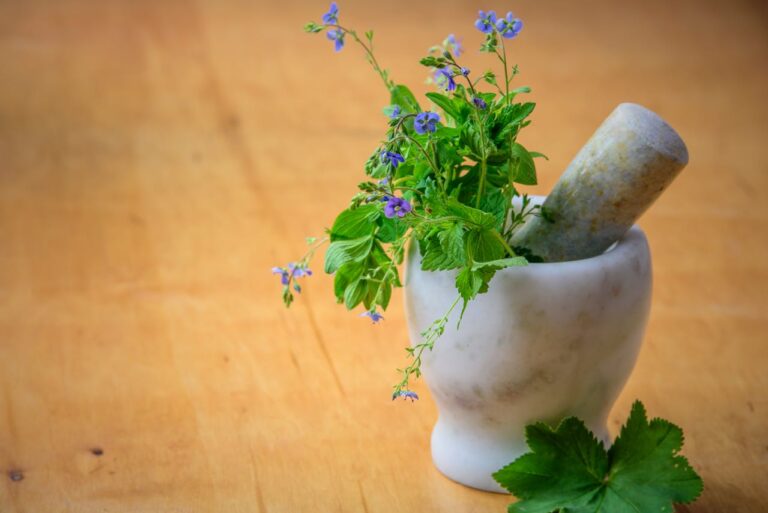The Debate: Nature vs. Lab-Made Solutions
Modern medicine has given us access to pharmaceuticals that can quickly alleviate symptoms, but with growing concerns about side effects, dependency, and long-term risks, many people are turning to natural remedies. Herbal medicine has been used for centuries across cultures, offering relief through plant-based solutions. But are natural remedies truly more effective than pharmaceuticals?
The answer isn’t black and white. Both approaches have their pros and cons, and understanding them can help you make informed health decisions.
The Problem: Are Pharmaceuticals Doing More Harm Than Good?
Pharmaceutical drugs are designed to target specific symptoms, often providing fast relief. However, they can also come with downsides:
- Side Effects & Risks – Many medications cause adverse reactions, ranging from mild discomfort to severe complications.
- Dependency & Overuse – Some drugs, especially painkillers and anxiety medications, can lead to addiction.
- Synthetic Compounds – Many pharmaceuticals contain artificial ingredients that may not align with the body’s natural healing processes.
- Masking Symptoms Instead of Addressing the Root Cause – While pharmaceuticals often provide quick relief, they may not always support long-term healing.
Because of these concerns, more people are searching for safer, natural alternatives. But does that mean herbs are the answer?
The Case for Herbs: Nature’s Healing Power
Herbal remedies have been used for thousands of years in traditional medicine systems like Ayurveda and Traditional Chinese Medicine. Unlike synthetic drugs, herbs work holistically, often supporting the body’s natural healing mechanisms rather than just suppressing symptoms.
Benefits of Herbal Remedies:
✅ Fewer Side Effects – Most herbs, when used correctly, have fewer adverse reactions compared to pharmaceuticals.
✅ Supports Root-Cause Healing – Instead of just alleviating symptoms, herbs often address the underlying imbalances in the body.
✅ Rich in Nutrients & Antioxidants – Many medicinal herbs contain vitamins, minerals, and bioactive compounds that support overall health.
✅ Less Risk of Dependency – Unlike certain pharmaceutical drugs, herbs do not usually lead to addiction or withdrawal symptoms.
✅ Cost-Effective & Accessible – Many herbal remedies are affordable and can be grown at home.
Popular Herbal Alternatives to Common Pharmaceuticals:
- For Pain Relief: Instead of NSAIDs (e.g., ibuprofen), some use turmeric, willow bark, or ginger to combat inflammation.
- For Anxiety & Stress: Instead of benzodiazepines, many find relief with ashwagandha, valerian root, or chamomile.
- For Sleep Issues: Instead of sleeping pills, lavender, passionflower, and magnesium-rich herbs help promote rest naturally.
- For Digestive Problems: Instead of antacids, herbs like peppermint, fennel, and slippery elm can support gut health.
- For Immune Support: Instead of over-the-counter cold medicines, people use elderberry, echinacea, and astragalus to boost immunity.
The Limitations: When Pharmaceuticals Might Be Necessary
While herbal remedies offer many benefits, they’re not always a one-size-fits-all solution. There are situations where pharmaceuticals might be necessary:
- Acute Emergencies – In cases of severe infections, surgeries, or life-threatening conditions, pharmaceutical interventions are crucial.
- Severe Chronic Conditions – Some diseases, like advanced-stage cancer or autoimmune disorders, require specialized medications.
- Lack of Immediate Effects – While herbs work to support long-term health, they often take time to show noticeable improvements, unlike fast-acting pharmaceuticals.
- Standardized Dosing – Pharmaceuticals provide precise dosing, whereas herbal remedies can vary in potency depending on preparation.
For the best results, a balanced approach—combining pharmaceuticals when necessary and incorporating herbal medicine for long-term health—might be the smartest path forward.
How to Use Herbal Remedies Safely
If you’re interested in trying herbal medicine, here are some tips to ensure safety and effectiveness:
✅ Do Your Research – Learn about the proper dosages and potential interactions of each herb.
✅ Consult a Professional – A herbalist or integrative healthcare provider can help guide you.
✅ Start Small – Test herbs in small amounts to see how your body reacts.
✅ Use High-Quality Sources – Opt for organic, pesticide-free herbs whenever possible.
✅ Be Patient – Herbal medicine often takes longer to work but supports long-term healing.
The Verdict: Which One is Better?
There is no definitive answer to whether herbs or pharmaceuticals are “better”—it depends on your needs and circumstances. While pharmaceuticals provide fast relief and are essential for emergencies, herbs offer a gentler, holistic approach to long-term health.
A combination of both may be the ideal solution. Understanding when to use pharmaceuticals and when to turn to herbal remedies can empower you to make the best decisions for your well-being.
Disclaimer:
This article is for informational purposes only and is not intended to replace professional medical advice. Always consult with a healthcare provider before starting any new treatment, whether herbal or pharmaceutical.







